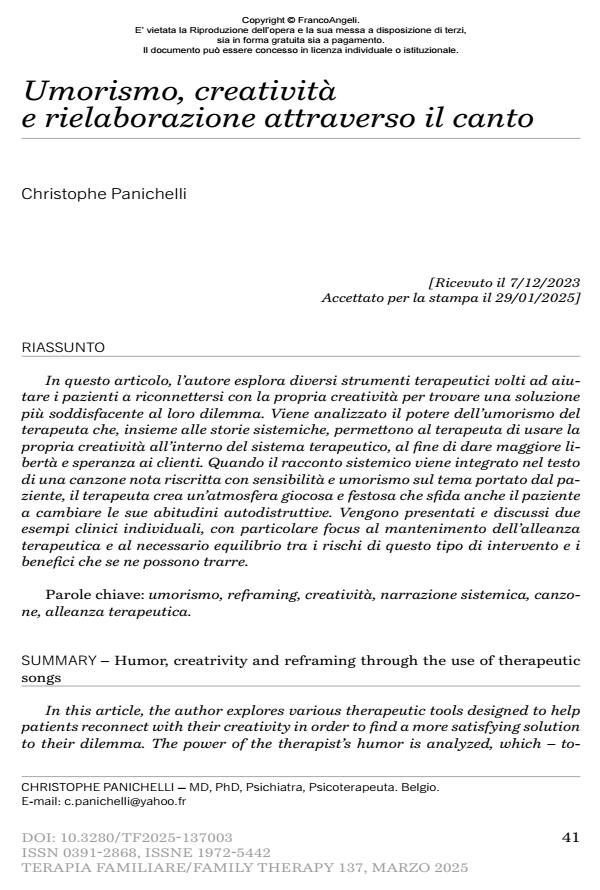Humor, creatrivity and reframing through the use of therapeutic songs
Journal title TERAPIA FAMILIARE
Author/s Christophe Panichelli
Publishing Year 2025 Issue 2025/137
Language Italian Pages 14 P. 41-54 File size 158 KB
DOI 10.3280/TF2025-137003
DOI is like a bar code for intellectual property: to have more infomation
click here
Below, you can see the article first page
If you want to buy this article in PDF format, you can do it, following the instructions to buy download credits

FrancoAngeli is member of Publishers International Linking Association, Inc (PILA), a not-for-profit association which run the CrossRef service enabling links to and from online scholarly content.
In this article, the author explores various therapeutic tools designed to help patients reconnect with their creativity in order to find a more satisfying solution to their dilemma. The power of the therapist’s humor is analyzed, which - together with the use of systemic storytelling – allows the therapist to use their own creativity into the therapeutic system, with the aim of offering clients a greater sense of freedom and hope. When the systemic narrative is integrated into the lyrics of a well-known song rewritten with sensitivity and humor around the patient’s core issue, the therapist creates a playful and festive atmosphere that also encourages the patient to challenge and change their self-destructive patterns. Two individual clinical cases are presented and discussed, with particular focus on maintaining the therapeutic alliance and balancing the potential risks and rewards of this method.
Keywords: Humor, reframing, creativity, systemic storytelling, song, therapeutic alliance.
Christophe Panichelli, Umorismo, creatività e rielaborazione attraverso il canto in "TERAPIA FAMILIARE" 137/2025, pp 41-54, DOI: 10.3280/TF2025-137003